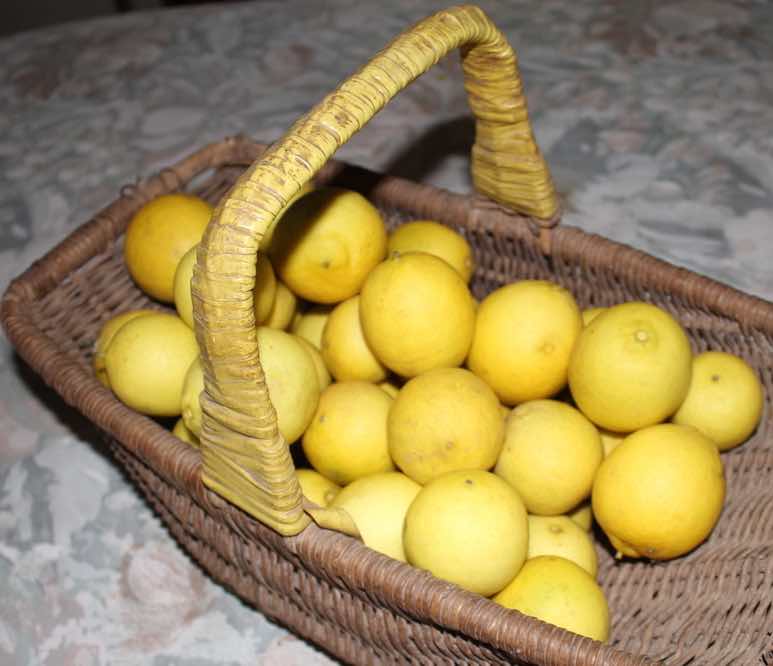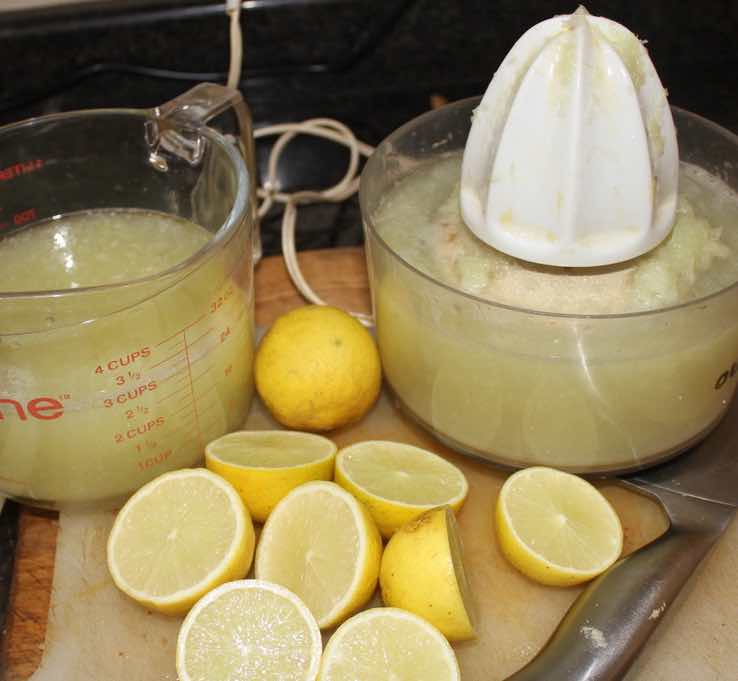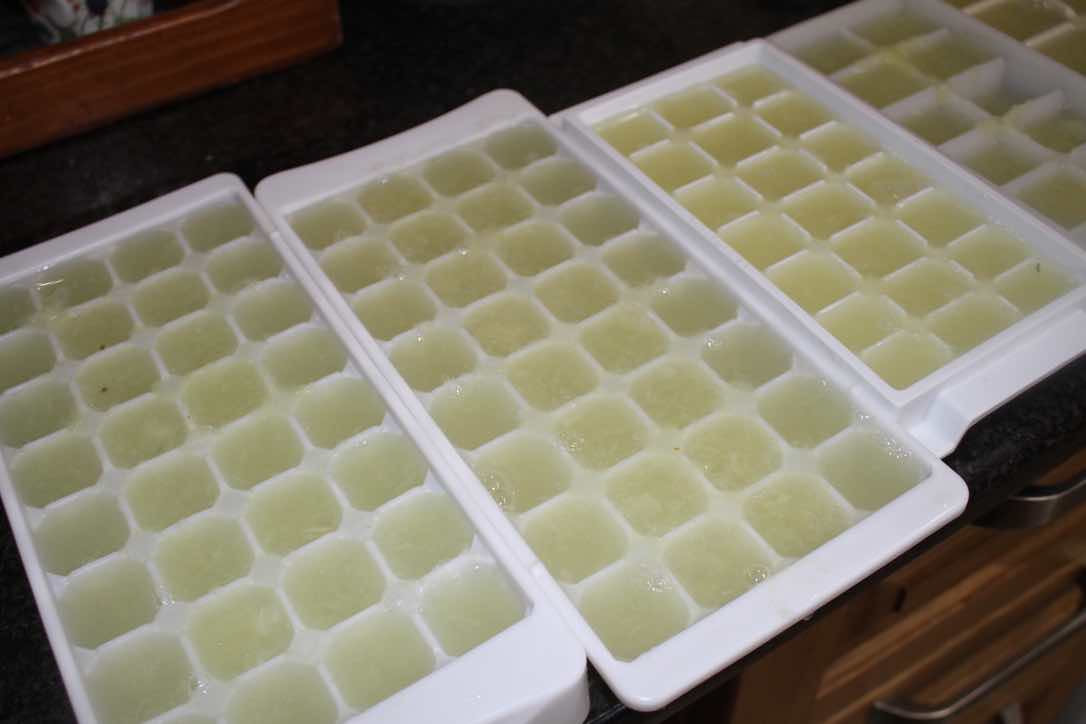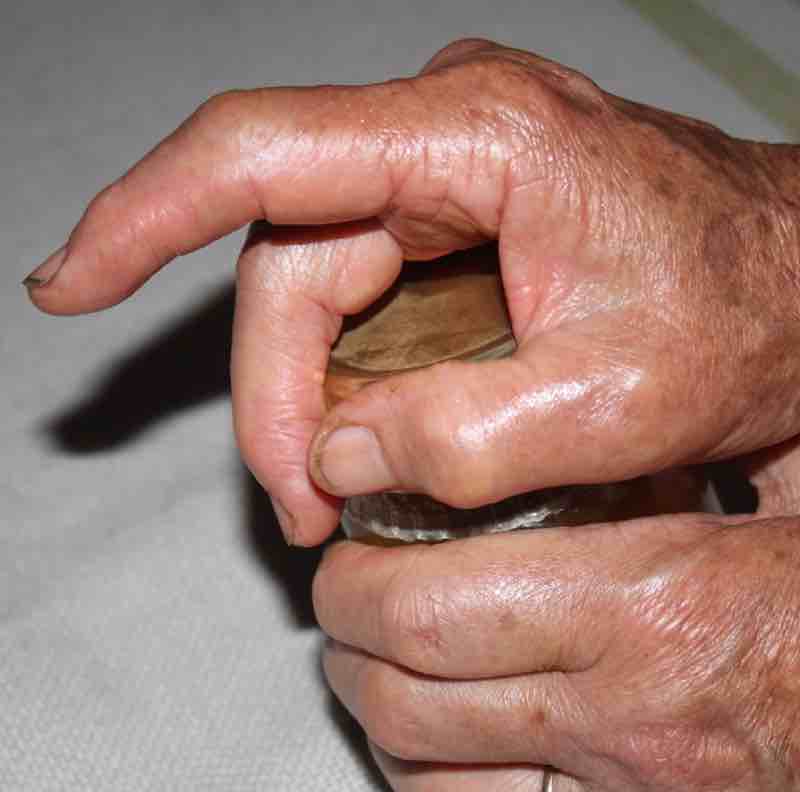- Bernard Preston homepage
- Citrus
- Health Benefits of Lime
Health benefits of lime
The health benefits of lime owe in part to the vitamin-C and several other very special phytonutrients.
The old adage when moving into a new home is to make sure there is a lemon tree planted in the garden; to which I would add a lime. There are subtle differences in taste and nutrition but both are rich in C, one of the four anti-frailty vitamins; plus those special phytochemicals mentioned above.
At least 50-percent of the goodies are contained in the pulp, so do not strain off the juice from the solids; in the zest too.
Two of those phytochemicals are called limonin and beta-cryptoxanthin, by the way.
They protect our minds from age onset degeneration; one in nine of those eating typical grocery store food have by sixty-five lost their marbles. That's horrific.
Shall these nutrients in citrus help us with "brain fog" too? Only time and new research will tell; it's likely.

This page was last updated by Bernard Preston on the 9th April, 2025.
Limonin
Limonin is a particularly interesting phytochemical that researchers are investigating; it has been strongly associated with preventing the glutamate-toxicity which is central in causing the neurodegenerative conditions like Alzheimer’s disease[1].
Limonin gives the fruit its bitter-taste; many people do not like that, so sadly researchers are developing citrus varieties that are low in the phytochemical; then they will not get the protection needed against these nasty diseases.
We have been hoodwinked into thinking we need only eat those foods that are to the liking of our taste-buds; and have an appealing "mouth feel."
Limeys
The British sailors were called limeys after an inspired fleet doctor discovered that the fruit would prevent the crews on the high-seas from dying of scurvy.
Far more sailors succumbed to a deficiency of vitamin C than were ever killed in armed conflict; an estimated two-million.
It is assumed that it was the vitamin-C in the limes that was responsible for saving so many lives; but the other active nutrients certainly also played their part.
Today not many people die of frank scurvy; but the more subtle symptoms of a mild vitamin-C deficiency are fatigue, lethargy and malaise. Does that sound familiar?
Those abound but of course there are many other causes of these subjective symptoms.
So I hope to have convinced you that citrus needs to be daily on the menu; limes and lemons are great sources of these complex nutrients.
At our green home we have both but I favour the lime because it has no pips. But how do you get to enjoy them year-round? The commercial concentrate is loaded with preservatives and is horrible beyond belief.
Health benefits of lime

The benefits of lime gave the British sailors their name; scurvy killed at least two-million mariners whilst exploring the high seas.
Our eight-year old tree produces literally hundreds of limes every year but the season is restricted to perhaps four or five months; so we freeze the juice.
Use an electric juicer since it is arduous by hand to squeeze the liquid out of twenty or more limes and lemons; without the strainer. Include as much of the pulp as possible. Some of the zest would also be good.
Pour the pulp and juice into ice-cube trays and when frozen, pop the blocks into clear plastic bags; seal and return them to the freezer.
It takes about half an hour to process 50 limes.
At around 4 rand per lemon or lime, we have had over R1000 worth of fruit from each tree this year. More important we have a steady supply of the juice that is so essential for sparkling well-being; and plenty of energy. We have no sleepless nights worrying whether we might get Alzheimer’s or another of the neurodegenerative diseases[3].
A healthy microbiome in the colon is also vital, by the way which is why we enjoy kefir several times a week. It is these little things that make for reaching eighty or even ninety with all our marbles and joints intact rather more likely.
A glut of limes
A glut of limes is a great joy for those who have a small garden where they can plant one of these amazing trees. The season is considerably longer than that of lemons which is another benefit.

Rheumatoid arthritis
Another benefit of limes is a much lower incidence of rheumatoid arthritis. The vitamin C is a natural anti-oxidant that scientists have found neutralises the free radicals that damage our cell membranes, causing inflammation.
 Arthritic fingers protected by the antioxidants in limes.
Arthritic fingers protected by the antioxidants in limes.In our family's case, Helen clearly has rheumatoid arthritis in her hands and feet but interestingly has little pain. The joints are swollen and disfigured but with no disabling ache; she can garden almost without restriction, including weeding which is very hard on the fingers.
We have found that adding a teaspoon of freshly-squeezed lime juice to the dough improves the taste and texture of our artisan bread.
Cholesterol and limes
Our livers produce a molecule called Apo-B that acts as a carrier of low density lipoproteins. That is the cholesterol that is considered dangerous by many authorities, though there are doubts that this is an oversimplification; there are different sizes and some are not bad.
In any event one of the benefits is that the limonin reduces the production of Apo-B, thus minimising the LDL concentration in the blood.
Cinnamon plays an important role in the management of diabetes, forming a hugely interesting topic; the spice improves insulin-sensitivity and combined with a few drops of lime juice in an infusion makes a wonderful hearty drink.
Tumours
Researchers have found that the phytochemicals in limes and lemons help to prevent the proliferation of tumour cells by increasing the levels of nitric oxide[2].
Dementia
There is strong research that a carotene in citrus called beta-cryptoxanthin greatly reduces the risk of suffering from age onset dementia. From supplements it has no advantage; we have to enjoy it in our food. It's one of the great health benefits of limes, lemons and oranges.
Take-home
Clearly the health benefits of lime and lemon are vast, far beyond the scope of a short blog like this; the take-home is simply that we should all be enjoying these citrus fruits on a regular basis.
Remember to consume some of the zest where much of the limonin is found; and all the pulp. My favourite kitchen utensils will be of assistance.
From the journals
When browsing use right click and "Open Link in New Tab" or you may get a bad gateway signal.
Newsletter
Our newsletter is entitled "create a cyan zone" at your home, preserving both yourself and Mother Earth for future generations; and the family too, of course. We promise not to spam you with daily emails promoting various products. You may get an occasional nudge to buy one of my books.
Here are the back issues.
- Lifestyle and ideal body weight
- What are ultra-processed foods?
- Investing in long-term health
- Diseases from plastic exposure
- Intensive lifestyle management for obesity has limited value
- A world largely devoid of Parkinson's Disease
- The impact of friendly bacteria in the tum on the prevention of cancer
- There's a hole in the bucket
- Everyone is talking about weight loss drugs
- Pull the sweet tooth
- If you suffer from heartburn plant a susu
- Refined maize meal and stunting
- Should agriculture and industry get priority for water and electricity?
- Nature is calling
- Mill your own flour
- Bake your own sourdough bread
- Microplastics from our water
- Alternative types of water storage
- Wear your clothes out
- Comfort foods
- Create a bee-friendly environment
- Go to bed slightly hungry
- Keep bees
- Blue zone folk are religious
- Reduce plastic waste
- Family is important
- What can go in compost?
- Grow broad beans for longevity
- Harvest and store sunshine
- Blue zone exercise
- Harvest and store your rainwater
- Create a cyan zone at your home
Did you find this page interesting? How about forwarding it to a friendly book or food junkie? Better still, a social media tick would help.
- Bernard Preston homepage
- Citrus
- Health Benefits of Lime
Address:
56 Groenekloof Rd,
Hilton, KZN
South Africa
Website:
https://www.bernard-preston.com